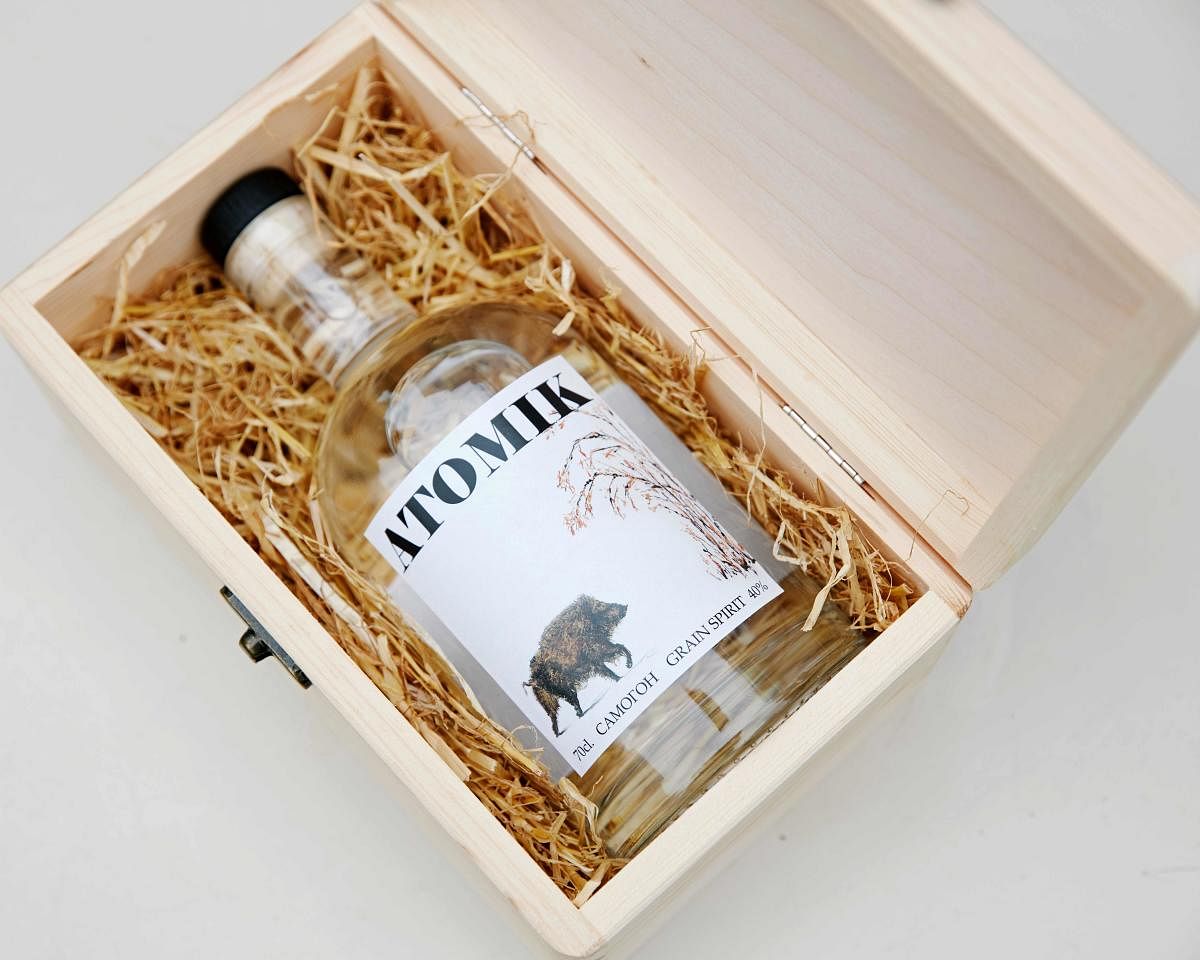
A team of British scientists has helped produce a radioactivity-free vodka called "ATOMIK" from crops near the site of the 1986 Chernobyl nuclear disaster, the University of Portsmouth said on Thursday.
The team did find some radioactivity in the grain but said the normal distillation process meant the only radioactivity in the alcohol was natural Carbon-14 "at the same level you would expect in any spirit drink".
"I think this is the most important bottle of spirits in the world because it could help the economic recovery of communities living in and around the abandoned areas," university professor Jim Smith said in a statement.
Smith, who has been researching the contamination from Chernobyl for nearly 30 years, worked alongside colleagues in Ukraine to produce the spirit.
After the accident, a 30-kilometre (19-mile) exclusion zone was established around the plant. Commercial farming is still banned both there and in a wider surrounding area.
"Many thousands of people are still living in the Zone of Obligatory Resettlement where new investment and use of agricultural land is still forbidden," Smith said.
The scientists said they were setting up a company called The Chernobyl Spirit Company to sell the vodka and hope to begin small-scale production later this year.
Seventy-five percent of profits from the production are planned to go to the local community.
Thirty people were killed in the Chernobyl explosion on April 26, 1986 and hundreds more died of related illnesses, though the exact figure remains disputed.
Soviet authorities initially tried to cover up and then play down the disaster.
Eventually 350,000 people were evacuated from the exclusion zone. Scientists say it will only cease to be radioactive in 24,000 years.